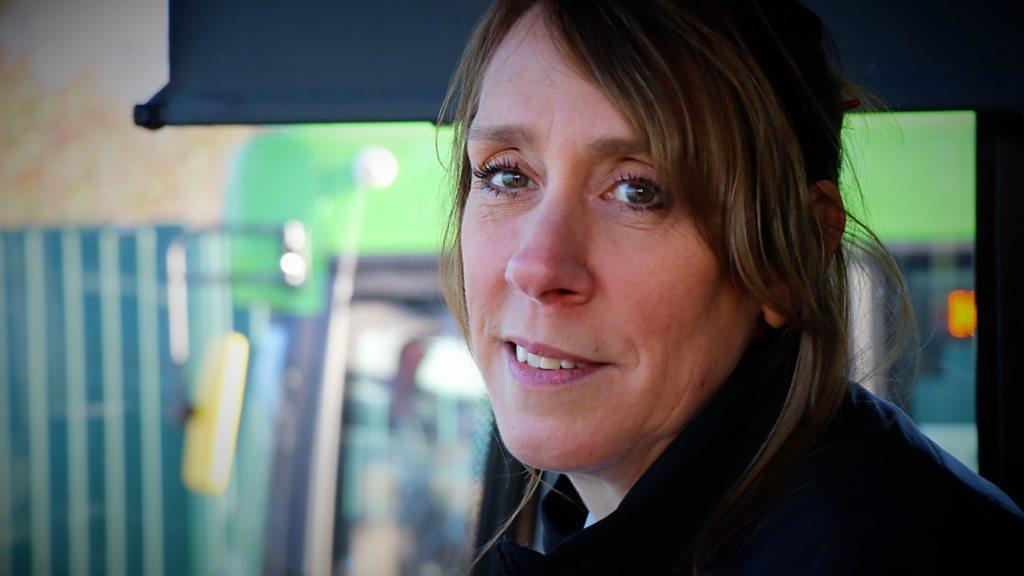Midland Red bus memories kept alive at transport museum
- Published
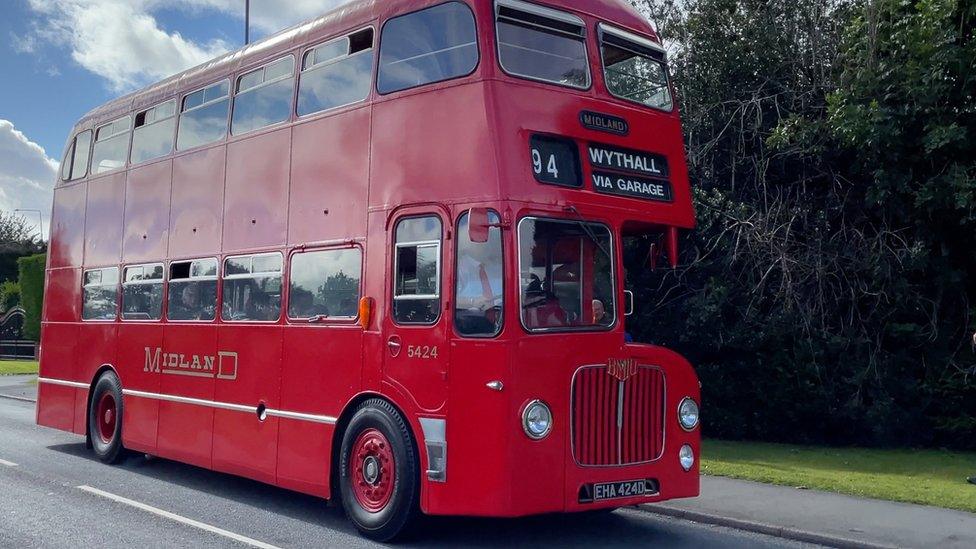
Between March and October, Transport Museum Wythall runs Midland Red trips around the local area
It's now exactly 40 years since a fleet of distinctive Midland Red buses last carried passengers all around the Midlands, but a transport museum in Worcestershire remains determined to preserve their memory.
Just off junction three of the M42, about 10 miles from the centre of Birmingham, sits Transport Museum Wythall.
It's home to a fleet of 90 single and double-decker buses, housed in a collection of buildings that ooze nostalgia, with Midland Red buses to the fore.
"Midland Red was the most important bus company in Great Britain," believes museum collections manager Malcolm Keeley.
"It had a huge territory right across the Midlands, so an area bounded by Shrewsbury, Stafford, Leicester, Banbury, Worcester, Hereford, anywhere within that, would've been served by Midland Red."
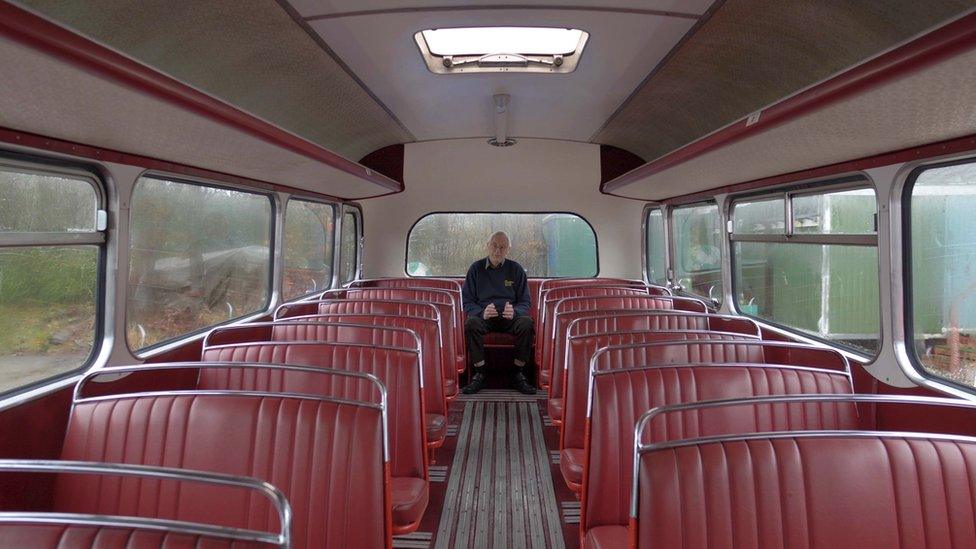
Malcolm Keeley describes Midlands Red as "a great bus company", adding: "It is one of the most significant there has been, and is truly distinctive."
The company came to prominence after World War One, following a management decision to build their own buses.
"Midland Red decided the only way to compete with other bus companies was to have bigger buses with more power," said Mr Keeley.
"So they went to their manufacturer and said 'this is what we want' and the manufacturer said 'oh no, sorry. No can do. This is all that's available'.
"And so, incensed, the chief engineer decided to build his own. It's lucky because here we are based in the West Midlands. There were so many vehicle components suppliers that he could get whatever he needed."
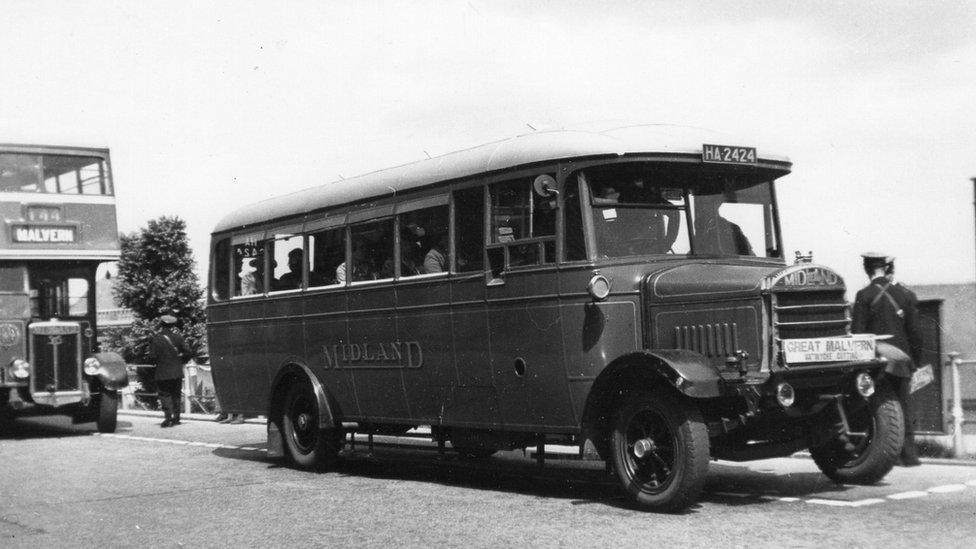
One of Midland Red's first own-build buses was a 1924 single-decker, seen at Great Malvern in 1938
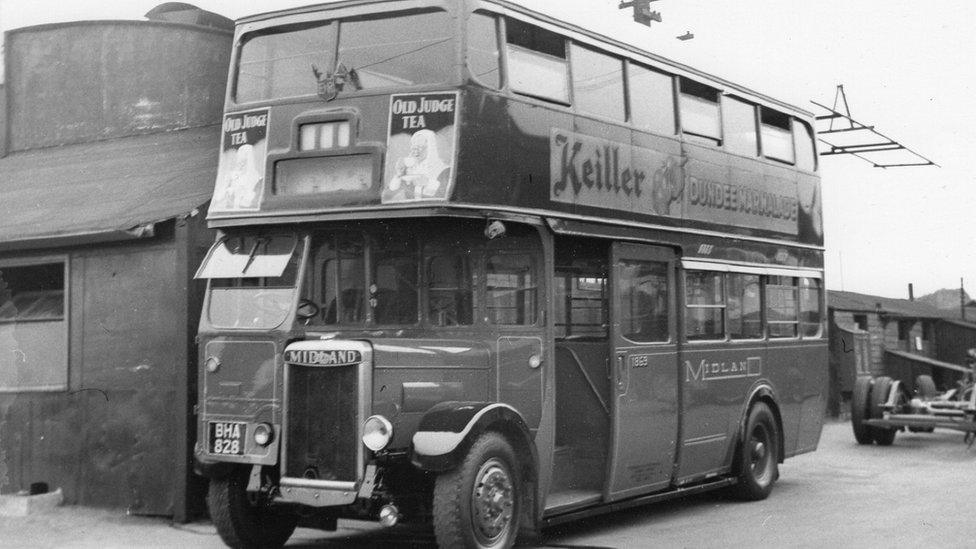
A Midland Red 1936 double-decker after its repaint in 1953, complete with coronation flags below the front upstairs windows
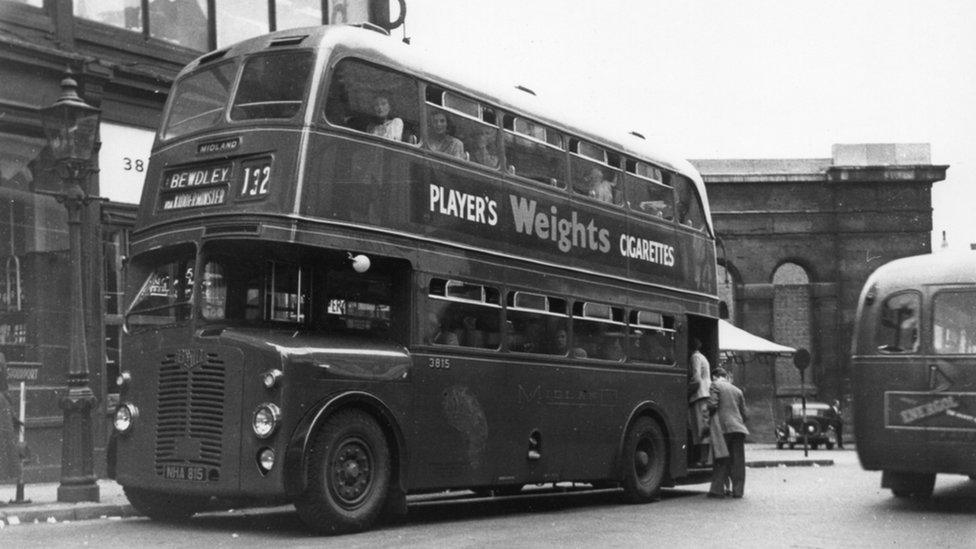
In 1951, Midland Red unveiled one of the first double-deckers with power operated doors. The bus, seen here in Worcester Street, Birmingham, also had heaters and offered good forward vision for the driver without a staircase in the way
The first in-house vehicle took to the roads in 1923 and Mr Keeley said "it was a great success".
"Midland Red gradually wore down the opposition and they also replaced tram cars in a number of towns in the West Midlands as well.
"So by the time World War Two broke out, they had over 1,000 buses."
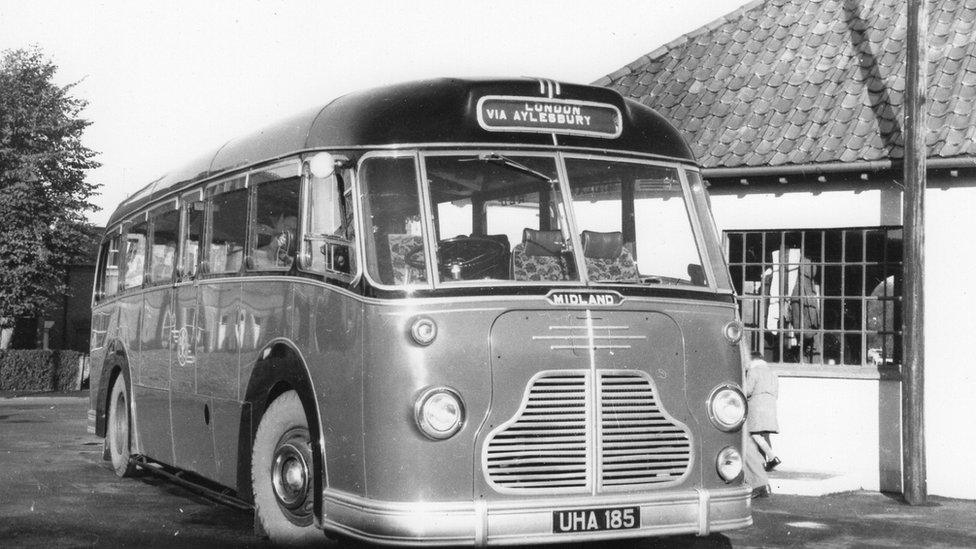
Midland Red pioneered underfloor engines, including on this luxury coach in 1954

Midland Red had express coaches ready for the first day of the M1 motorway in November 1959. Coaches were previously restricted to 30mph, but initially there was no motorway speed limit. These coaches routinely ran at 80mph with drivers claiming even higher speeds
Midland Red developed buses with underfloor engines, creating more space for passengers.
"That was about four years before all the big manufacturers came along with the same sort of design, so Midland Red effectively redesigned the British bus for a second time," said Mr Keeley.

Underfloor engines on double-deckers were difficult to manufacture because of height regulations. Midland Red's two prototypes in 1960 were technologically significant. Only one survives and is exhibited at Transport Museum Wythall
After World War Two, the first signs of trouble began to emerge for Midland Red, and the wider bus industry.
Passenger numbers, particularly in the evenings when more people could now watch television rather than rely on their local cinema, began to drop off - and the age demographic of Midland Red's staff didn't help.
"In the 1960s, problems really started to crowd in," said Mr Keeley. "They had a lot of engineers building and maintaining the vehicles. A lot of them were old boys who started in the 1920s and these chaps were retiring.
"Midland Red suddenly found that they couldn't replace them because the car factories were paying so much more, so they started running out of engineers and one of the casualties was the production of the new vehicles - and they increasingly had to buy them from outside manufacturers.
"Once the production levels went down, they started becoming uneconomic. Eventually, in 1970, they built the last one. And of course, all the engineers that they had, they needed those to maintain their running fleet."

Staff pose with the very last bus built by Midland Red in February 1970
In 1981, the gradual decline of the famous Midland Red bus brand became terminal.
"The last of their home-built buses were taken out of service, but more significantly, later in the year, it was decided that the company was really becoming uneconomic and that something had to be done," said Mr Keeley.
"So the powers that be decided that they would break the company up into several pieces and that basically was the end of the Midland Red as we knew it.
"And then about five years later, the privatisation programme came along and all these bits were sold to different bus groups with their own liveries, and images.
"So Midland Red basically disappeared. It just faded away."
But not at Wythall, where a committed band of volunteers preserve the heritage of Midland Red and other bus companies.
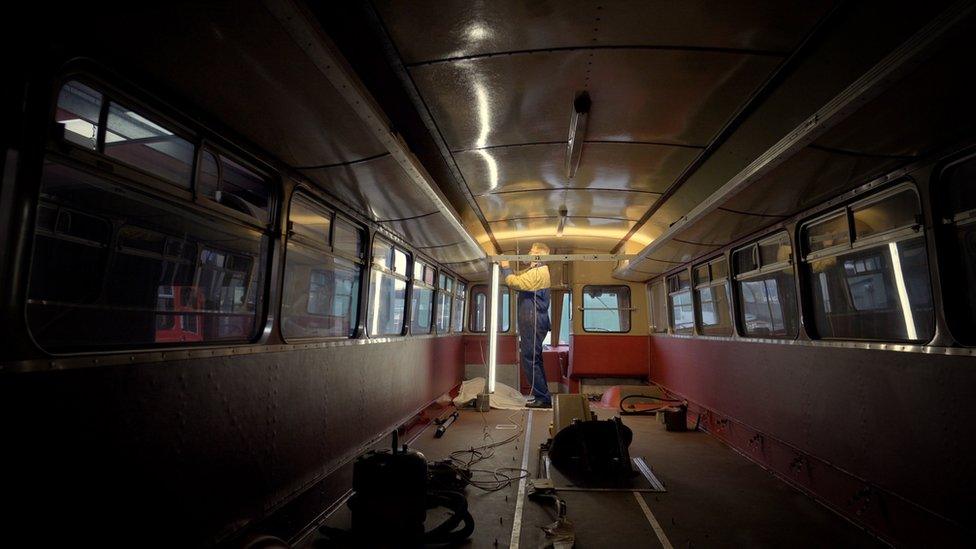
Work to restore Midland Red buses continues at Transport Museum Wythall
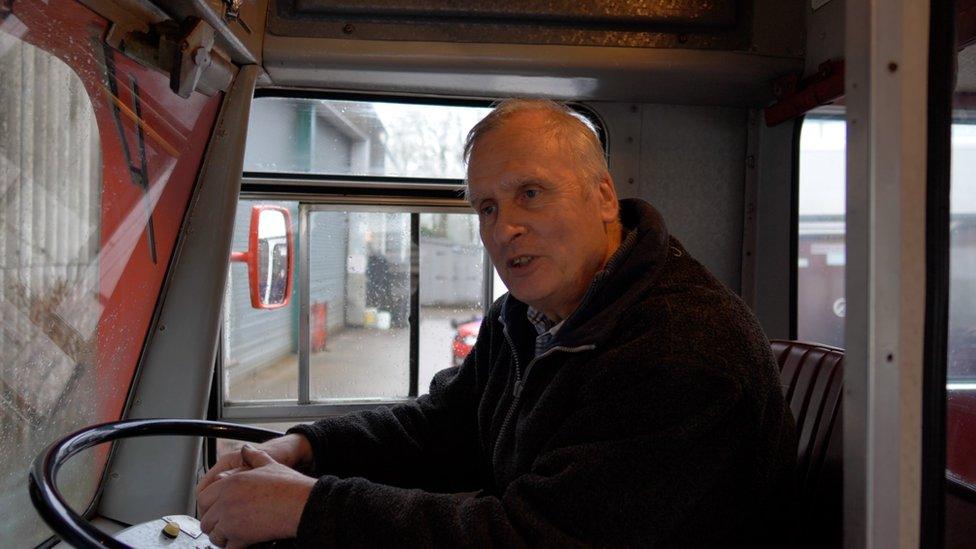
Museum trustee Jeremy Price has a lifelong affection for Midland Red buses. "It goes back to my childhood where I lived in a small village in rural Staffordshire and the only two things to pass the house each hour were Midland Red buses. So I got quite interested in them at the age of five or six. Then went to school on one up to the age of 18."

This 1969 BMMO S-23 type is the last model of single-decker that Midland Red ever made. It came off service towards the end of 1980 and operated from Kidderminster garage all its working life

"The S-23 type is on about its third repaint. The engine is original in terms of mechanical parts, but the brakes have been overhauled many times as have bits of the gearbox and bits of the suspension and brakes," said Mr Price
But it's not all about driving - there's plenty of regular maintenance work to do under the bonnet.
"Everything's repairable within reason. We've not been stumped yet. But bear in mind, there's no Haynes manuals for these things. So you have to learn by other people's experience," said Mr Price.

During the summer months, buses from the museum can regularly be seen on the lanes of north Worcestershire

The museum used this double-decker to run services to Stratford-upon-Avon in October as it marked 40 years since Midland Red buses were in operation
It's easy to see the motivating force that drives the volunteers on at Transport Museum Wythall.
"Keeping our heritage. That's it. Keep the heritage living," said Mr Price.
"And I think we've succeeded very well in keeping Midland Red going some 40 years after they last operated in service.
"People said at the time 'You won't be able to do it', but 40 years on, we are."
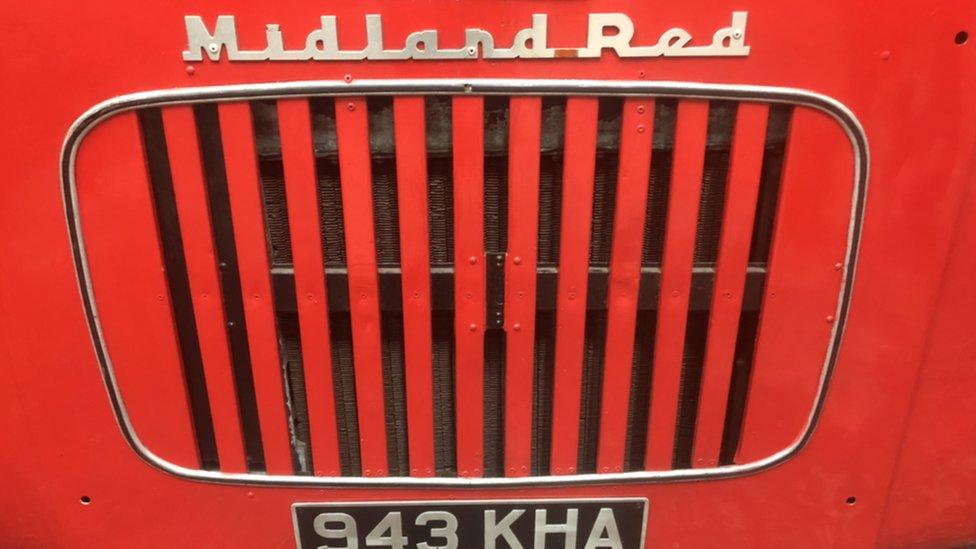
Transport Museum Wythall is planning a bus show at the British Motor Museum, at Gaydon, in Warwickshire, in July
Dozens of people have been sharing their memories of Midland Red on the BBC Midlands Facebook page, external.
Bernard Davies posted: "The 268 brings back memories, got the bus most nights back from Wolverhampton to the pub... happy days."
Susan Nash shared memories of her father and uncle who worked for the firm, describing her father Harold as "a skilled fitter" at Bearwood and then Edgbaston.
For Fran Bowdler, not owning a car meant it was "always an adventure" riding on the Midland Red buses "especially our children who always wanted to sit upstairs".
Shaun Harrison said he was one of the drivers who took the last few buses "from the Bull Ring station to Kidderminster when it closed" and said the firm "always offered a more polite, personal and smoother journey".
Transport Museum Wythall reopens to visitors on 26 March.

Follow BBC West Midlands on Facebook, external, Twitter, external and Instagram, external. Send your story ideas to: newsonline.westmidlands@bbc.co.uk, external
- Published18 November 2021
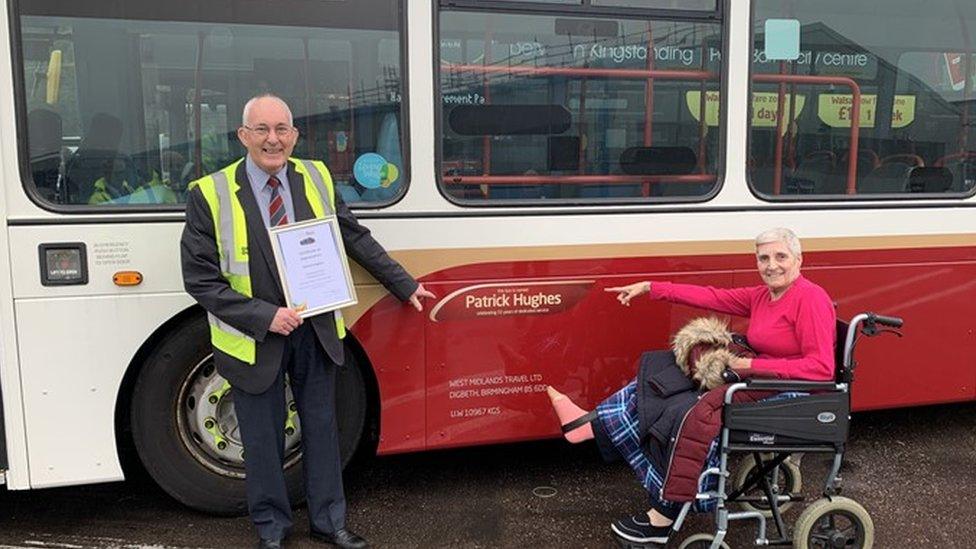
- Published14 December 2021
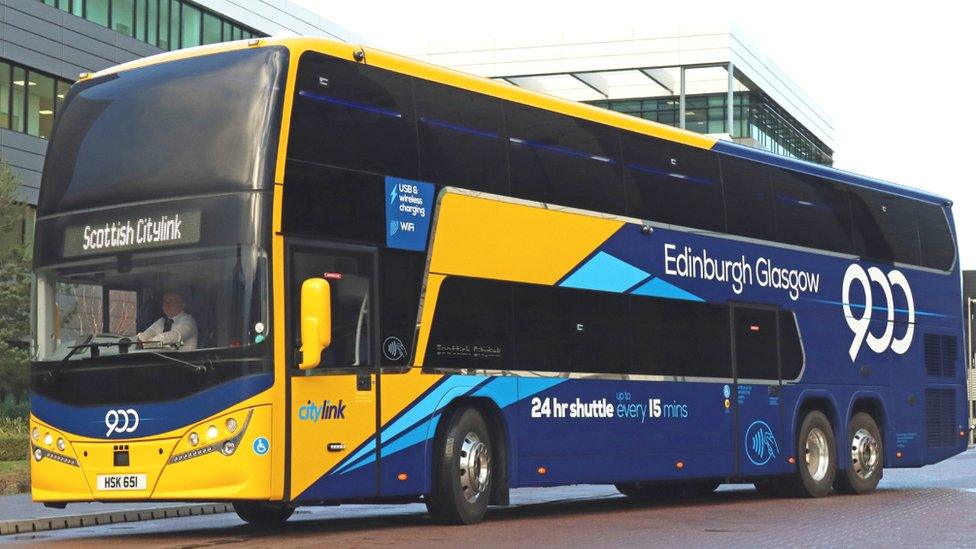
- Published17 December 2021
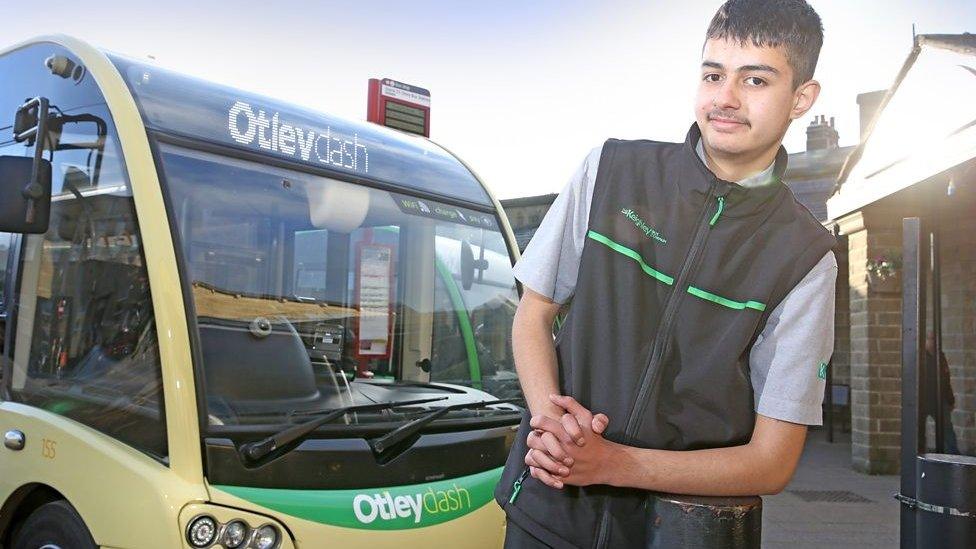
- Published23 November 2021
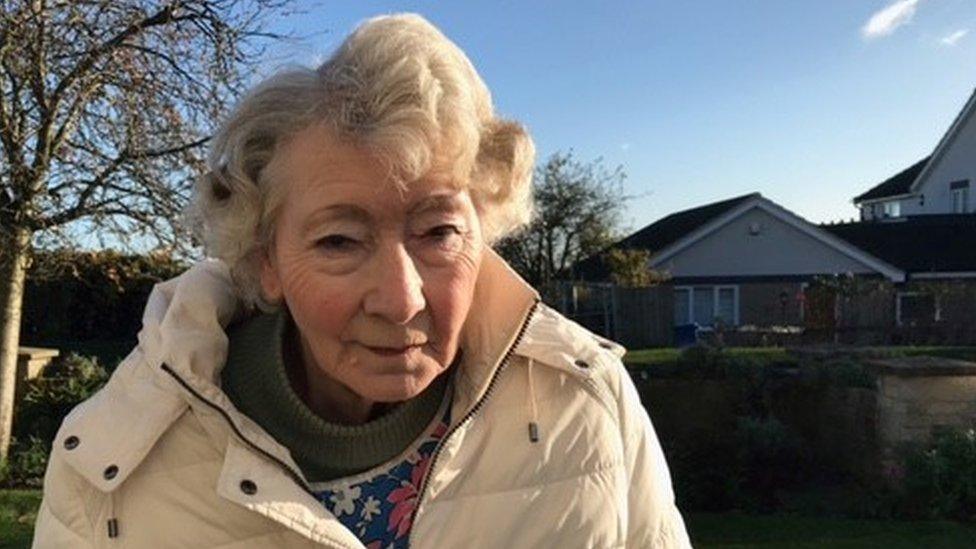
- Published2 December 2020
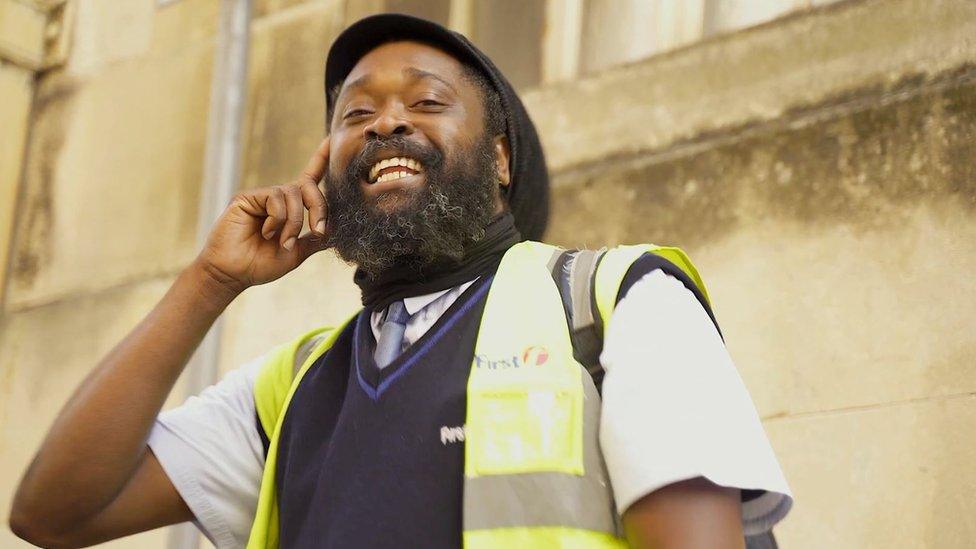
- Published28 December 2021
